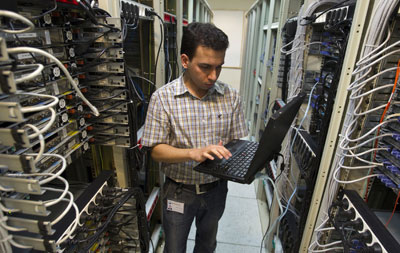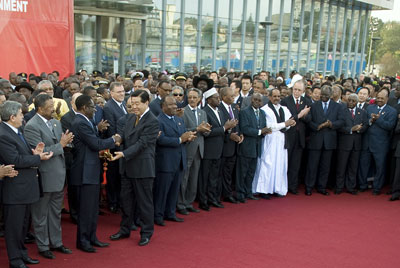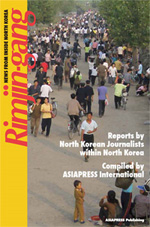Signs of change in North Korea
CPJ may have raised some eyebrows with this year’s list of the world’s 10 most censored countries. North Korea was relegated to the number two slot, behind Eritrea. In our last ranking, in 2006, we ranked North Korea as the worst, and many other organizations continue to do that.

Most censored nations each distort the Net in own way
One big reason for the Internet’s success is its role as a universal standard, interoperable across the world. The data packets that leave your computer in Botswana are the same as those which arrive in Barbados. The same is increasingly true of modern mobile networks. Standards are converging: You can use your phone, access an…

China not most censored, but may be most ambitious
China didn’t make the cut for our 10 most censored countries. While the Chinese Communist Party’s censorship apparatus is notorious, journalists and Internet users work hard to overcome the restrictions. Nations like Eritrea and North Korea lack that dynamism.
Rimjin-gang’s latest reporting from North Korea
Here’s a quick pointer to Rimjin-gang, my favorite website delivering current reporting from North Korea. Produced by Japan-based Asia Press Network, Rimjin-gang is also just about the only site producing news from one of the world’s most censored nations.

More rare news from North Korea
The latest batch of reporting–writing, photography, and video–from North Korea is available online at Asia Press Network (APN). The stories deal with apparent hyperinflation, the emergence of street markets in Pyongyang, and the reported reduction of rations for military personnel. They’re the sort of stories you seldom see out of North Korea that give depth…
Protecting yourself from denial-of-service attacks
It’s my second link to a report by Hal Roberts (and others at the Berkman Center) in as many days, but I worry that this this detailed document on denial-of-service (DOS) and hacking attacks on independent media and human rights groups might get missed in the holiday season. The news headlines in the last few…

News with a genuine North Korea dateline
A book named Rimjin-gang–News from Inside North Korea just became available. It’s a compilation of years of reporting by a group of about 12 North Koreans using video and still cameras to record everyday life in North Korea. The title comes from the Rimjin River (Imjin in English), which forms part of the Demilitarized Zone…
Korea Times: Censorship on pro-NK websites tightens
The Korea Times documents the disturbing increase in censorship of writing about North Korea, with the police forcing website operators to remove 42,787 pro-North Korean comments. This may be due to an increase in North Korean government attempts to enter the online debate, but some point to the general anti-Net sentiment of the Lee administration.…
Lee and Ling: ‘Instinctively, we ran.’
Current TV journalists Laura Ling and Euna Lee were arrested by North Korean police on March 17 for allegedly entering the country illegally and carrying out “hostile acts.” In June, they were sentenced to 12 years’ hard labor. Now back in the U.S. after receiving a pardon, the two are telling their story on Current.com,…
Joel Simon on The New York Times’ “Room for Debate”
CPJ Executive Director Joel Simon is one of four diverse voices featured on The New York Times “Room for Debate” blog. The debate centers on the risk of venturing into dangerous territories, whether for recreation or journalism. You can read Simon’s take on the Times’ Web site.